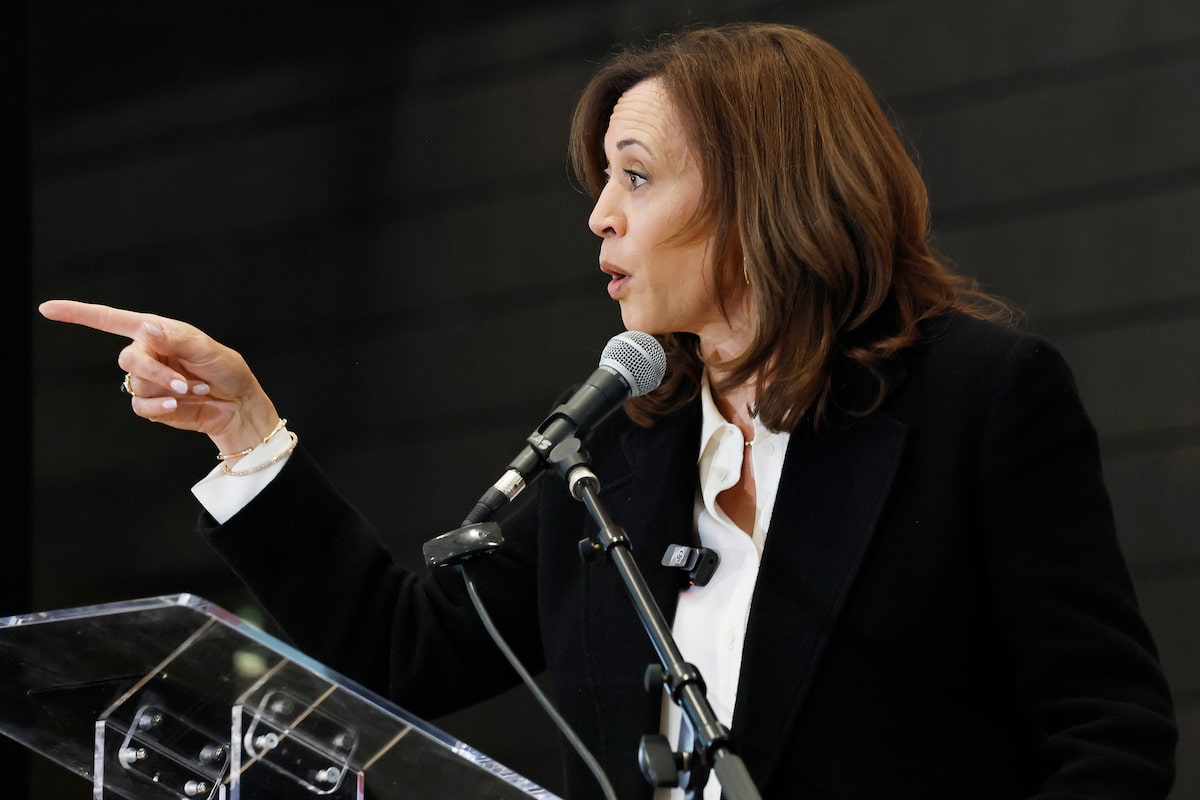During her 2024 U.S. election campaign, Democratic candidate Kamala Harris stuck closely to the views of her predecessors by avoiding “woke” language or policies, beyond those already embraced by the average American.Mario Tama/Getty Images
A year ago, it started to become almost mandatory for journalists to describe politics today as “highly polarized.” We now habitually refer to “the ultra-polarized political climate” as an explanation for the madness emerging from populist politicians.
Unsurprisingly, it began in earnest south of the border. Something about the replacement of Joe Biden with Kamala Harris as the Democratic presidential candidate last summer turned an already ugly race into one routinely described as “the most polarized election in American history.”
The suggestion is that political parties and their voters have divided into a radical left and an extreme right, with little remaining in the mainstream.
If true, it means that not just formerly conventional conservative parties have adopted extreme and intolerant views, but liberal and moderate parties have experienced a similar drift.
The only serious evidence for this is the rhetoric of the far right. For example, Donald Trump has regularly referred to his predecessors Barack Obama and Mr. Biden as far-left extremists, and repeatedly called Ms. Harris a “Marxist” or “communist.” In Canada, Conservative leader Pierre Poilievre has used the same words to describe his Liberal opponents.
Donald Trump’s alien ideology has caused a global crisis among conservatives
On closer examination, the polarization of North American politics has been limited to only one pole. The ideological map has become pear-shaped: During the mind-warping years of the pandemic and its social-media echo chambers, a lot of people became attracted to fringe ideas and conspiracy theories on the right, and the leaders who espouse them, but there hasn’t been any similar shift, of any significant scale, on the left.
A Canadian study of this trend was published this year by York University sociologist Cary Wu in the Journal of Canadian Studies. Drawing on a wide range of data sources and studies, Dr. Wu found that political moderates have dramatically declined in numbers in Canada, but that this is largely accounted for by increases in the size of the far right. “Canadians are polarizing,” he concludes, but “they are polarizing toward the right more than toward the left.”
It was during the 2024 U.S. election that the illusion of polarization became ingrained. Although Mr. Trump became increasingly unhinged as that campaign went on, Ms. Harris and her party went out of their way to avoid any association with the cultural or identity-politics ideas of the left, even when they might have been popular. This appeared to be heartfelt: Ms. Harris, with a background as a tough-on-crime prosecutor, had no history of supporting the left’s positions on culture-war matters; she hewed closely to Mr. Biden and Mr. Obama, who both forcefully avoided “woke” language or policies, beyond those very widely embraced by mainstream Americans, such as marriage equality or abortion rights.
CNN’s Jake Tapper reflects on what Biden’s decline reveals about U.S. politics
The Democrats went as far as banning anyone from speaking out at their convention against Israel’s extreme-right Prime Minister Benjamin Netanyahu, lest the party be associated with left-wing campus protesters. The Democrats may have lost a lot of votes in key states over their rejection of widely held views such as this, but there was absolutely no sign of the “leftward lurch on social issues” that reporters from Politico recently claimed had “cost them the November election.”
What has especially caused Ms. Harris – and other moderate leaders after her – to be falsely associated with the far left is the constellation of issues and hysterias known on the right as “gender,” as well as the memory of mass protests and riots against police violence during the pandemic years. Although there definitely are far-left activists on both subjects, Mr. Harris had absolutely nothing to do with them; instead, she said little about either, and quietly took mainstream positions on both issues.
But the mainstream has become measurably more tolerant. Same-sex marriage, for example, has become so acceptable to the majority of voters that even Mr. Trump doesn’t publicly attack it. It’s moderate, centrist views, not far-out radical ones, that have come under attack.
This week a study by Vancouver-based polling firm Research Co. asked Americans and Canadians what they thought about “political correctness.” They weren’t asking about Mr. Trump’s ultra-PC desire to, for example, consider removing mentions of slavery from national parks; rather, they asked about “language and/or behaviour that seeks to minimize possible offences to racial, cultural and gender identity groups.”
Democrats battle over party’s future after Mamdani stuns in New York City
The results were very pro-PC: Six out of 10 Canadians, and a majority of Americans, said they support political correctness – and in both countries, the pro-PC proportion of the population has increased since 2022.
That doesn’t mean that middle-of-the-road voters are drifting to the far left. It means that moderate, mainstream political views have become more open and tolerant – and therefore hated by Trump-like figures on the rightward extreme. For all the noise they throw at these normal views, it’s worth remembering that they’re the only ones who are polarized.
